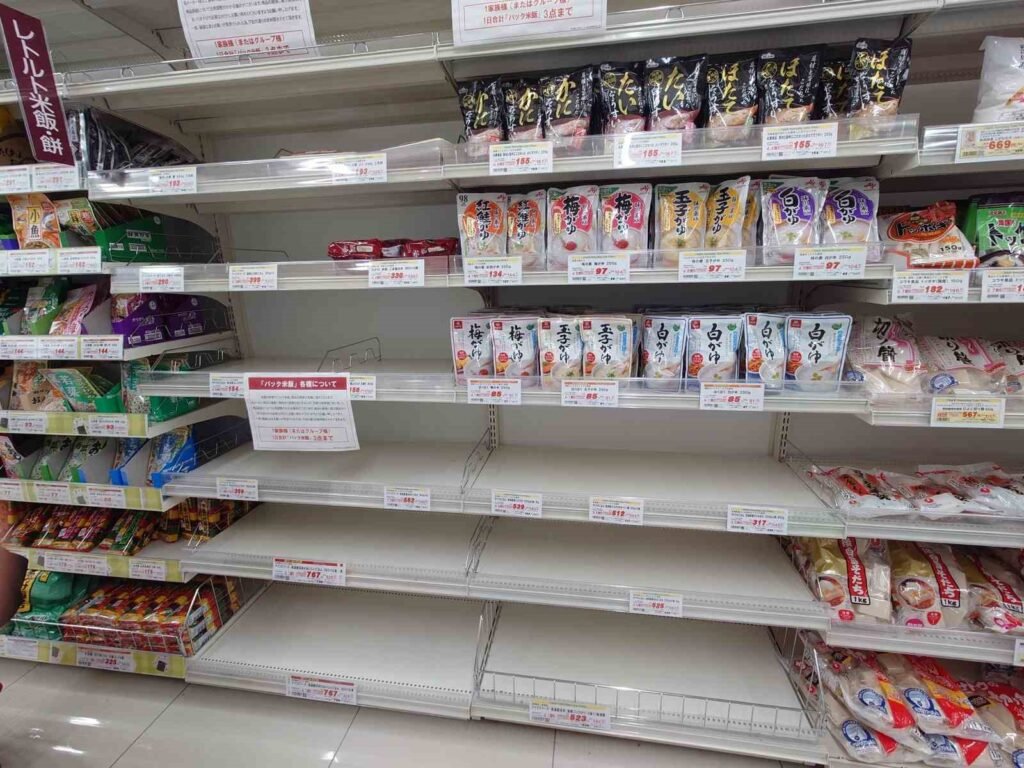Rice crisis in Japan: Supermarket shelves are empty
The trend of stockpiling due to natural disasters in Japan and the increase in consumption following the influx of foreign visitors have led to a rice crisis in the country. Due to the insufficiency of stocks held by the private sector, supermarket shelves are left empty, while some supermarkets…

The trend of stockpiling due to natural disasters in Japan and the increase in consumption following a surge in foreign visitors has led to a rice crisis in the country. As private sector stocks proved insufficient, supermarket shelves have been left empty, and some stores have imposed limits on sales per customer.
In Japan, where rice is a staple food, a food crisis has emerged. After the 7.1 magnitude earthquake that struck the country last month and the Shanshan Typhoon, the trend of stockpiling, combined with increased consumption brought about by a surge in tourism and adverse weather conditions affecting production, has made it difficult to find rice in the country. Many supermarkets have empty rice shelves, and warnings stating “Rice cannot be sold due to supply shortages” have been posted. Some supermarkets have also introduced sales limits on rice per customer.
“We tell the customer there is none”
Yakup Baran, who works at a Turkish restaurant in Ueno, one of Tokyo’s most touristy areas, stated that the ongoing rice shortage has negatively impacted food businesses. Baran reported that they are struggling to find rice, saying, “Places with stock are giving 3-5 kilos. That is not enough for us.” He mentioned that they are having trouble preparing dishes that include rice on their menu, adding, “We tell the customer ‘there is none.’” Yuka Ozawa, who noted that rice is one of the most consumed food items in Japan, said, “I also love eating rice. However, it has been difficult to find rice wherever I go these days. I hope the problem will be solved as soon as possible.”
“Life without rice is very difficult for Japanese people”
Ryu Wakayama stated that rice is a very important agricultural product for Japanese people, expressing that he has not been able to find rice anywhere, including supermarkets. He emphasized that this situation negatively affects people’s lives, saying, “For Japanese people, life without rice is very difficult.” Yusaku Maeda pointed out that the issues in rice supply stem from the trend of stockpiling following natural disasters such as earthquakes and typhoons.
A record drop in stocks
In Japan, the private sector’s rice stock fell to 1.56 million tons in June, marking the lowest level since data collection began in 1999. The average annual decline in rice demand is about 100,000 tons, but in the one-year period leading up to June 2024, demand increased by 110,000 tons compared to the previous year, rising to 7.02 million tons. Among the reasons for the increase in rice demand were the heightened consumption due to a record number of foreign visitors and a decrease in supply due to climate conditions. It has been commented that the natural disasters experienced have increased the tendency to stockpile.





